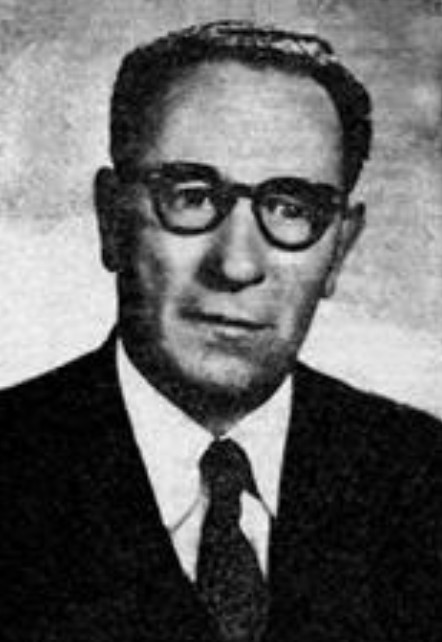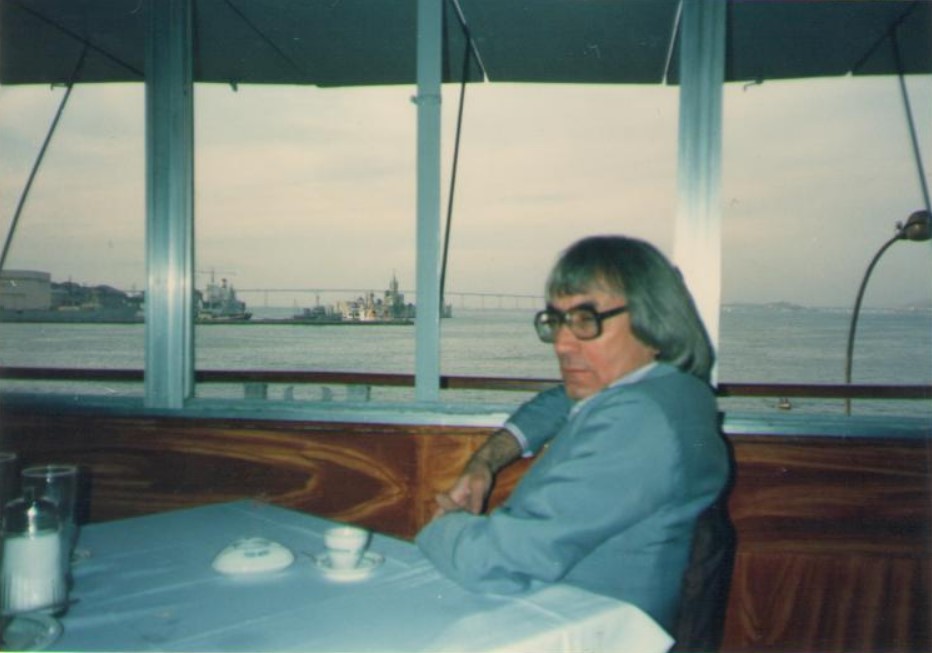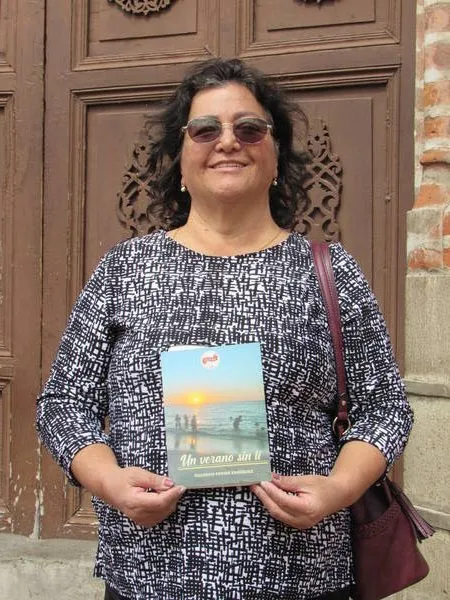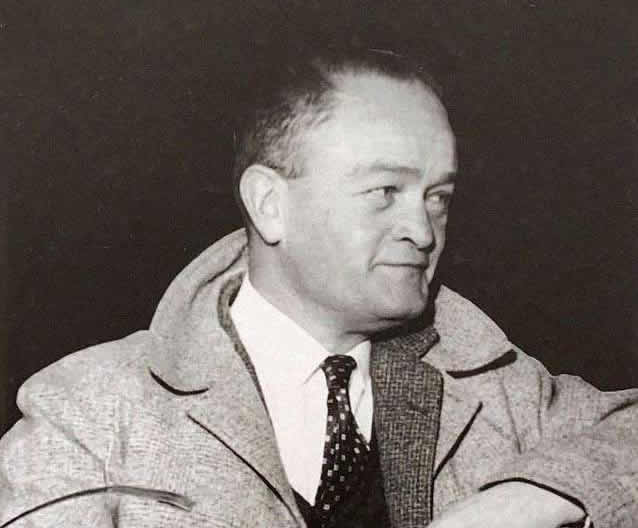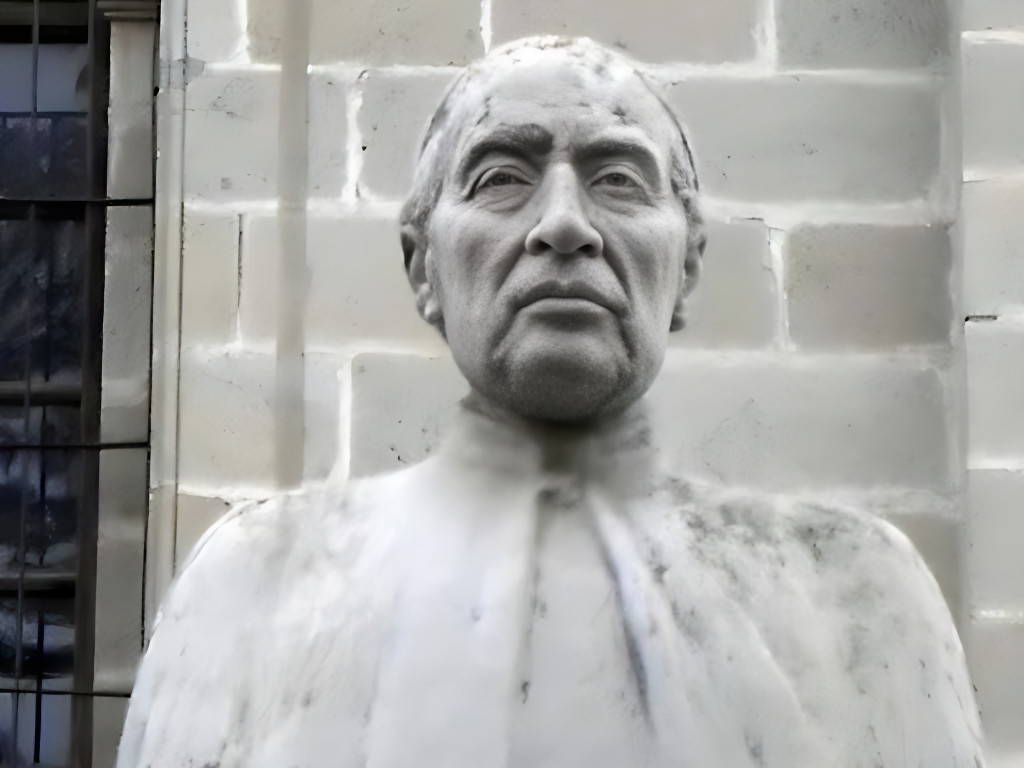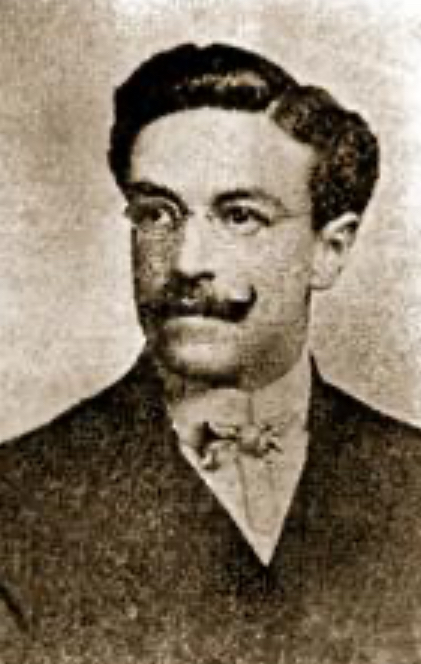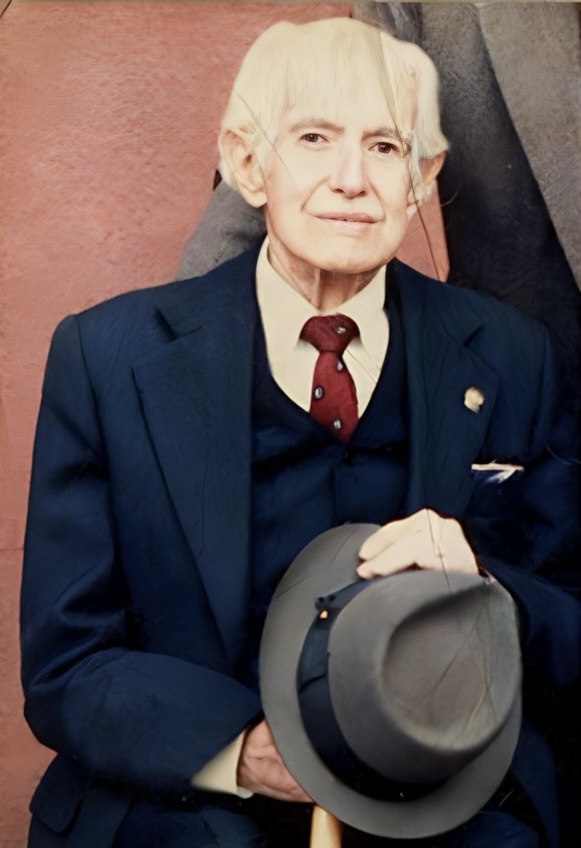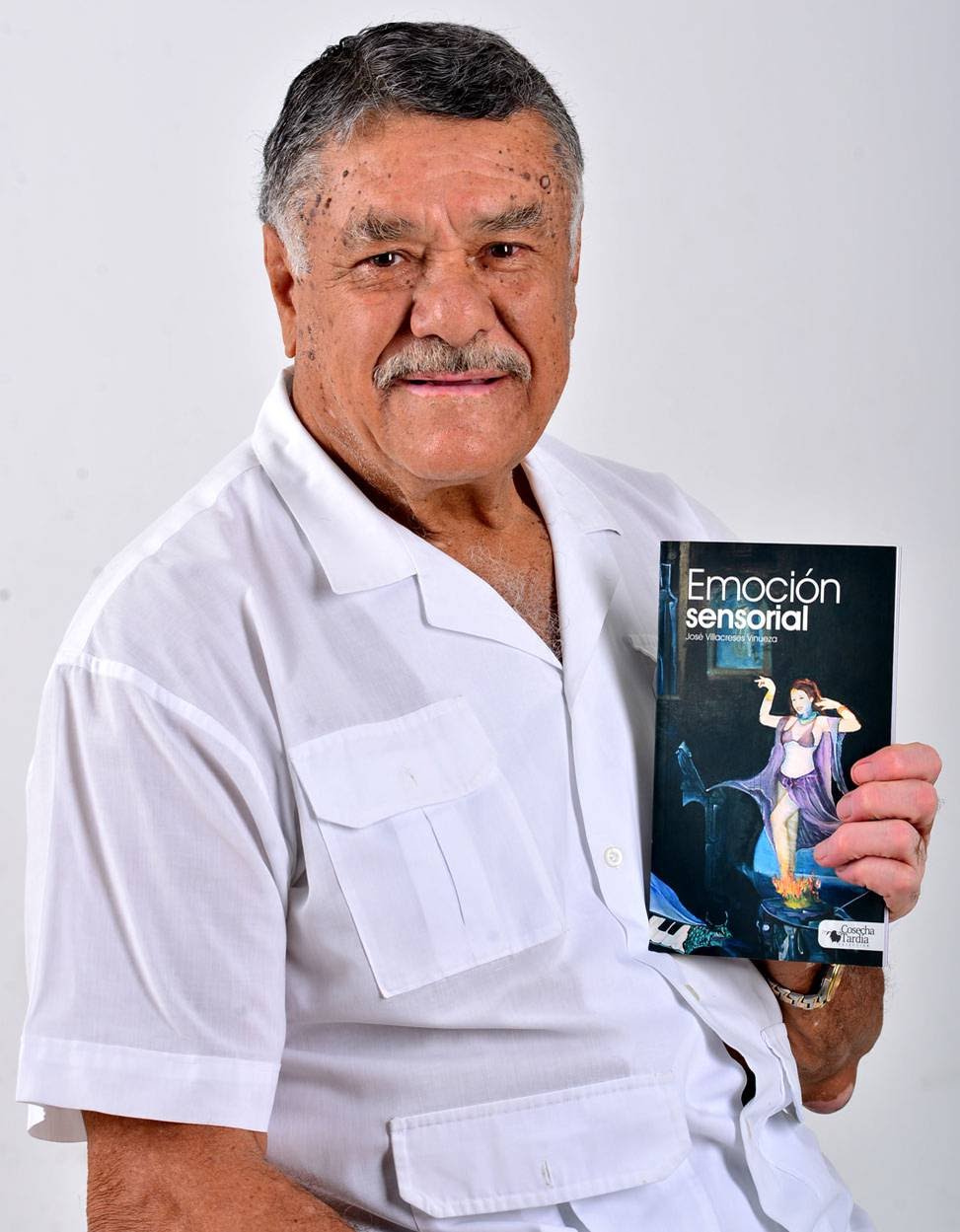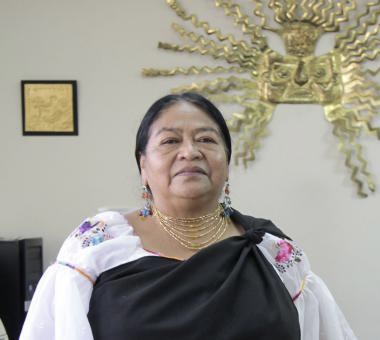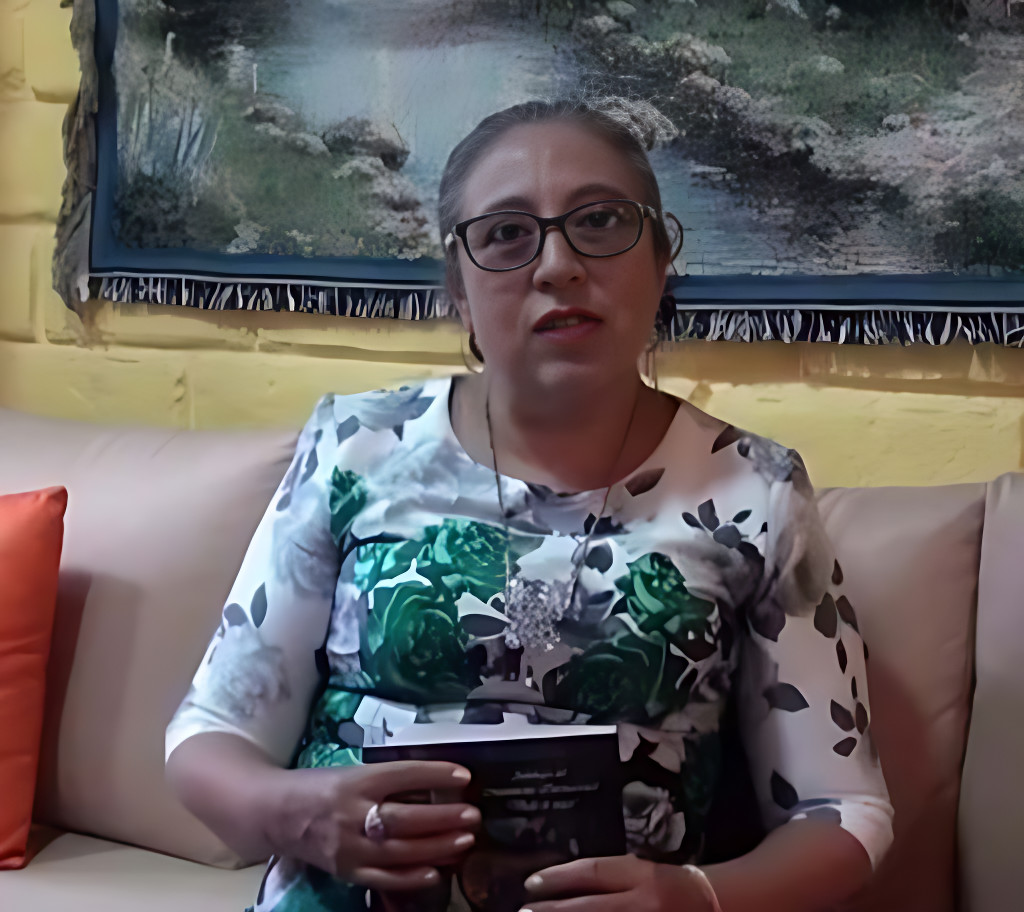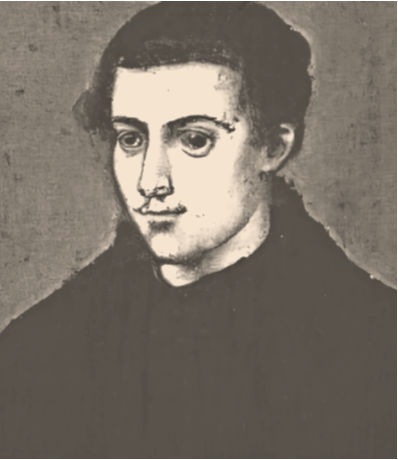Miguel Ángel Zambrano (Riobamba, 1898 – Quito, 1969) was an Ecuadorian poet, university professor, and social reformer whose work bridged literary and political spheres. Known for his late start in publishing, Zambrano released his first poetry collection, Diálogo de los seres profundos, at age 58, earning acclaim for its philosophical depth and apocalyptic tone. His poetry, which includes Biografía inconclusa (1961) and Mensaje (1968), explores themes of existentialism and social justice, resonating with Ecuador’s indigenous and working-class struggles. As a professor at the Central University of Ecuador, he also founded the Institute of Social Research and co-authored Ecuador’s 1938 Labor Code. His legacy endures through posthumous collections and preserved recordings, cementing his status as a key figure in Ecuadorian literature and social thought.
Continue reading “Miguel Ángel Zambrano”Category: Writers from Riobamba
Luis Cisneros Noriega
Luis Cisneros Noriega (Riobamba, 1908 – 1987) was an Ecuadorian poet, composer, and pianist. He published several poetry collections, including Cúpulas en la nieve (1960), Pinceladas (1975), Blancuras (1977), and Presencia (1983). As a composer, he created notable pieces such as the pasodoble “Quito“ and the popular song “Chola Cholita.” Cisneros Noriega also worked as a pianist at Radio El Prado in Riobamba during the 1930s, contributing to the promotion of Ecuadorian music and culture. A street in Pastaza and a school in Chimborazo are named in his honor.
Continue reading “Luis Cisneros Noriega”Sergio Román Armendáriz
Sergio Román Armendáriz (Riobamba, Ecuador, February 12, 1934) is an Ecuadorian poet, playwright, screenwriter, and professor. A member of the avant-garde poetry group “Club 7” (1951-1962), he has contributed significantly to Latin American literature through works such as Cuaderno de canciones (1959) and the experimental play Función para butacas (1972). After political exile in the 1960s, he settled in Costa Rica, where he became a distinguished professor at the University of Costa Rica, specializing in literature, drama, and communication. His career also spans film, most notably co-writing Nuestro Juramento (1981), a film about singer Julio Jaramillo.
Continue reading “Sergio Román Armendáriz”Socorro Freire Enríquez
Socorro Freire Enríquez (Riobamba, October 27, 1953) is an Ecuadorian writer, poet, and educator known for her contributions to literature and education. She holds advanced degrees in pedagogy and educational management, and has served as a professor and literacy advocate at the Universidad Nacional de Chimborazo. A recipient of numerous literary awards, including the Benjamín Carrión Prize, she has published poetry, essays, and short stories in works such as “Voces Azules a Vuelo de Pájaro”. She is also the founder of the Association of Contemporary Writers of Ecuador and an active member of international literary organizations.
Continue reading “Socorro Freire Enríquez”Gerardo Chiriboga
Gerardo Chiriboga (Riobamba, 1895 – Quito, 1966) was an Ecuadorian genealogist, journalist, and poet, known for his diverse contributions to the literary and historical fields. Among his literary works, “Minuto muerto, poemas” (1934) stands out as a compelling collection of poems. Additionally, he authored “Galápagos: El hombre, la tierra y el paisaje” (1948), a comprehensive exploration of the Galápagos Islands. This work is part of a significant body of literature that emerged post-World War II about the archipelago, following the departure of the American base. His literary efforts, including his recognized contributions to poetry in the anthology “Antología de poetas Riobambeños” (Anthology of Poets from Riobamba) (1963), further cement his place in Ecuador’s literary history.
Continue reading “Gerardo Chiriboga”Cristóbal Cevallos Larrea
Cristóbal Cevallos Larrea (1902-1978), holding a Doctorate in Law, was a multifaceted Ecuadorian intellectual, poet, writer, journalist, teacher, and jurist who had a significant influence on Ecuador’s cultural landscape. Cristóbal Cevallos Larrea demonstrated his dedication to cultural enrichment by leading the Chimborazo branch of the Casa de la Cultura in Riobamba, serving as a founding member in 1953 and later as its president in 1964, as well as heading the Ateneo del Chimborazo. In legal and educational spheres, Larrea held the positions of Minister and President of the National Court of Justice and taught Constitutional and Political Law and Civic Studies at the Colegio Nacional Maldonado in Riobamba for many years. Among his literary works, “La Gesta Amazónica” is renowned as an epic poem dedicated to the Amazon.
Continue reading “Cristóbal Cevallos Larrea”Gustavo Vallejo Larrea
Gustavo Vallejo Larrea (Riobamba, 1905 – Quito, 1961), a journalist, poet, legislator, and advocate for education, founded the “Campaña Nacional de Alfabetización” (National Literacy Campaign) in 1948. As president of the National Union of Journalists (UNP), he led this movement, significantly reducing illiteracy rates across Ecuador for 17 years. His dedication, fueled by the belief in education’s pivotal role in national development, propelled the campaign to isolated areas, urban suburbs, and even prisons. Additionally, Vallejo played a significant role in shaping the 1945 Ecuadorian Constitution, contributing to its clarity and the articulation of progressive principles. Vallejo’s legacy continues, with a school in Quito named in his honor and a bust in Riobamba.
Continue reading “Gustavo Vallejo Larrea”Juan Félix Proaño Castillo
Dr. Juan Félix Proaño Castillo (Riobamba, July 20, 1850 – Quito, July 30, 1938) was an Ecuadorian priest, theologian, writer, educator, and political figure, whose extensive contributions spanned the late 19th and early 20th centuries, significantly shaping Ecuador’s cultural and religious landscape. Celebrated for founding “El Templo del Sagrado Corazón de Jesús” in 1892, a newspaper that integrated religious teachings with cultural and literary discourse, Proaño stood firm against the liberal reforms of his era. This conviction led to his exile, during which he persisted in his scholarly and pastoral work. His historical drama “Quisquís” is particularly notable for its portrayal of Incaic civilization, underscoring his commitment to chronicling and preserving Ecuador’s rich historical and cultural heritage.
Continue reading “Juan Félix Proaño Castillo”Carlos Arturo León Romero
Carlos Arturo León Romero (June 25, 1886, Riobamba – December 19, 1968, Quito) was an Ecuadorian lyricist, poet, playwright, and distinguished lawyer. Born into a family with a rich legal heritage, he carved a niche for himself not just in the courts but also on the cultural stage of Ecuador. His works spanned across various genres including drama, poetry, and novels, showcasing his versatility and deep engagement with the socio-political themes of his time. León Romero’s contribution to Ecuadorian literature and theater is profound, with plays such as “Reparación,” “El Recluta,” and “La Huérfana” earning critical acclaim and popular success. His establishment of the Teatro Daniel León further cemented his legacy as a patron of the arts, providing a platform for the performing arts in Ecuador.
Continue reading “Carlos Arturo León Romero”Ambrosio Larrea
Ambrosio Larrea, also known as Father Ambrosio Nicolás Larrea y León (born in Riobamba, Ecuador, on December 7, 1742, and died in Faenza, Italy, on September 19, 1796), was a Jesuit priest, poet, and intellectual whose influence extends beyond religious realms into literature and progressive thought. Celebrated for his poetry, Larrea found his voice during his exile and was recognized after his death for his contributions to the neoclassical and Parnassian movements. His work, mainly created while displaced, showcases a deep engagement with Enlightenment ideals and a strong sense of American identity. His poetic oeuvre includes poignant tributes, such as those dedicated to the sepulcher of Clavijero, reflecting his keen insight and stylistic elegance. Though his body of work is not extensive, Larrea’s writings are cherished for their expressive depth and refinement.
Continue reading “Ambrosio Larrea”Ángel Leónidas Araújo Chiriboga
Ángel Leónidas Araújo Chiriboga (Riobamba, October 21, 1900 – Quito, February 15, 1993) was a figure of remarkable versatility and profound influence within Ecuador’s cultural landscape. His diverse career spanned composition, poetry, public service as a tax inspector for the Ministry of Finance, hotel management, and a notable tenure as editor-in-chief of the Estampa de Bogotá magazine, but it was his indelible contributions to the pasillo genre that cemented his legacy. This article explores the life and works of this distinguished Ecuadorian artist, whose talents bridged the realms of music and literature, leaving an enduring mark on his nation’s cultural heritage.
Continue reading “Ángel Leónidas Araújo Chiriboga”José Villacreses Vinueza
José Villacreses Vinueza (Riobamba, Ecuador, 1940) is an Ecuadorian author, poet, chemical engineer, and former athlete, renowned for his contributions to literature, science, and sports. Over the years, he has authored several notable books, including “Nervios de Guitarra” (2010), “Manantial de Ensueños” (2014), “Emoción Sensorial” (2016), and “Mi Vida Entre Poemas” (2019), each reflecting his deep emotional and sensorial engagement with the world. Villacreses’s multifaceted career spans across academia, sports, and literary realms.
Continue reading “José Villacreses Vinueza”Estelina Quinatoa Cotacachi
Estelina Quinatoa Cotacachi (Riobamba, October 1, 1953) is a distinguished Ecuadorian historian and curator of Kichwa Otavalo heritage. Her extensive qualifications include a Bachelor’s in Applied Anthropology from the Salesian Polytechnic University, a Master’s in Conservation and Cultural Asset Management from Universidad SEK, and the title of Anthropology expert from Universidad Abierta de Loja. She has contributed significantly as an Educational Guide at the Museum and Galleries of the Central Bank of Ecuador and later as an Assistant at the Archaeological Reserve of the Central Bank of Ecuador. Internationally acclaimed, she has conducted courses and conferences across the Americas and Europe. Her prolific publications and research reflect her unwavering commitment to preserving Ecuador’s cultural heritage, culminating in her prestigious induction into the National Academy of History of Ecuador in June 2021.
Continue reading “Estelina Quinatoa Cotacachi”Gladys Paredes Bonilla
Gladys Erminia Paredes Bonilla (Riobamba, 1965) is an Ecuadorian poet and educator. She is a member of the literary section of the Chimborazo chapter of the House of Ecuadorian Culture. She represented Ecuador at the 2020 “Second Virtual Book Fair Italy.” Bonilla is part of the “Vuelo de Mujer” movement, a group of 45 women using poetry to combat violence against women and promote respect. Her 2018 poetry collection “Instantes,” was published by the Chimborazo branch of the House of Ecuadorian Culture.
Continue reading “Gladys Paredes Bonilla”José de Orozco
José de Orozco (Riobamba, March 18, 1733) was a renowned Jesuit priest and poet. Educated at the University of San Gregorio Magno in Quito, he joined the Society of Jesus in 1748 and devoted himself to both religious service and academic pursuits. However, the expulsion of the Jesuits from Spanish territories in 1767 marked a significant shift in his life. After resettling in Italy, Orozco turned to literature as a means of expressing his feelings of exile and nostalgia, most notably in his poem “Lamentos de la musa de Chimbaraso aflijida con las penas de su destierro,” a deeply nostalgic poem reflecting his longing for his homeland. Among his other significant works, “La Conquista de Menorca” stands out as a monumental epic poem, earning Orozco a place among the great poets of the 18th-century Spanish colonial period.
Continue reading “José de Orozco”
